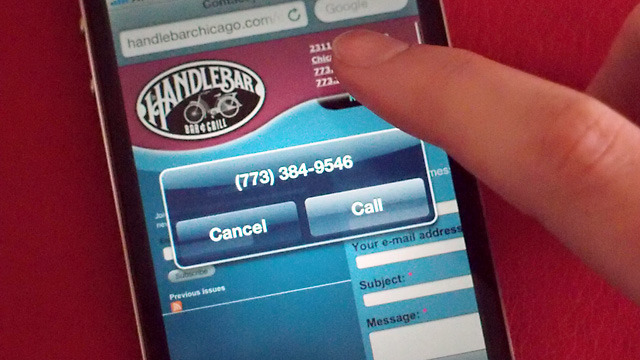
The International Trade Commission handed down a ruling on Monday saying that several of HTC's smartphones infringed on an Apple patent and would be subject to an import ban beginning in April 2012. The case is important for Apple, as it is the first substantive ruling that Android devices definitively infringe on an Apple patent. Despite this, however, the end result of this particular ruling may have little material effect on HTC, Google, or other handset makers—HTC says it plans to remove the offending feature, and there's plenty of time to do so before the ban kicks in.
The ITC ruling goes back to Apple's first legal attacks against HTC in March 2010. In addition to filing a federal patent infringement lawsuit, Apple also filed a 337 patent infringement complaint with the ITC. While the ITC takes its own sweet time to render a final ruling—in this case, nearly two years—the Commission still generally wraps up its cases faster than typical federal circuit court dockets.
Apple originally cited 10 patents against HTC, but at the time the complaint was filed, Apple was also fighting Nokia with some of the same patents. The ITC decided to break the case against HTC into two parts, adding HTC to the case against Nokia where four of the patents overlapped, and initiating another investigation solely against HTC concerning the remaining six patents.
The ruling on Monday concerned the combined case with Nokia over four patents. The patents in question included one on layering an object oriented application on top of a procedural operating system (i.e. Mac OS X on top of UNIX), a method for dynamic object message passing translation, automatically recognizing certain data structures and offering actions for that data (i.e. "Data Detectors"), and a method for performing realtime signal processing within a non-realtime OS. As you might suspect, many of these features are now common to mobile operating systems, so if HTC's Android handsets infringed on them, then likely all Android handsets infringe them as well.
Apple and Nokia settled their ongoing patent disputes in June, and Nokia was removed from the case. That still left HTC on the hook, and in July, an administrative law judge ruled that HTC did in fact violate claims of the patents related to Data Detectors and realtime API processing.
The findings of the ALJ are typically reviewed by a six-person panel before becoming final. During the review process, the panel reversed the decision on realtime processing, but held that HTC's phones did violate claims of Apple's '647 "Data Detectors" patent.
This patent, awarded in 1999, relates to a feature that first appeared in Mac OS 8. Applications could, using a system-wide service, automatically detect certain types of data, such as dates, names, addresses, and more. A contextual "tool-tip" would pop up if the mouse was hovered over any recognized data, offering certain actions that could be performed with it. For instance, Mac OS might offer to create a calendar reminder using a date.
The feature was lost in the transition to Mac OS X, but later reappeared in Mac OS X 10.5 in certain applications, such as Mail, iChat, and Terminal. The feature is also used widely in iOS. It's the feature that turns phone numbers and addresses into clickable links that can either dial a number or perform a Maps search.
HTC's Android phones now face an import ban beginning in April 2012, though Android itself contains similar features, so Apple could try to make a case to have an import ban imposed on all Android devices. That may not happen, though, as HTC said in a statement that it will remove the feature from its devices in order to work around the ban.
"[T]he '647 patent is a small UI experience and HTC will completely remove it from all of our phones soon," a company spokesperson told BGR. The company didn't appear to elaborate on how, exactly, it plans to remove the feature, so we may have to wait to find out what the end result will be on that front.
Former IP attorney (and current editor at The Verge) Nilay Patel agrees that removing the feature or devising a workaround is the likely course that Google will also take.
"It sounds like HTC and Google feel that they can work around this patent very quickly, and they have a long time to do it," Patel told Ars. "I would be surprised if there was any fundamental consumer impact beyond perhaps a different implementation of a similar feature."
If Apple had been able to assert any of the other three patents, including the realtime processing patent, against HTC, it could have potentially caused much bigger headaches for Google and other Android vendors. Still, Apple has its federal lawsuit and an additional ITC complaint against HTC currently pending. And there are lawsuits and ITC complaints underway against Motorola and Samsung as well. As we noted nearly two years ago, Apple's proxy fight against Android could last years before Google or its handset partners face serious legal repercussions.
Listing image by Photograph by Chris Foresman
reader comments
107